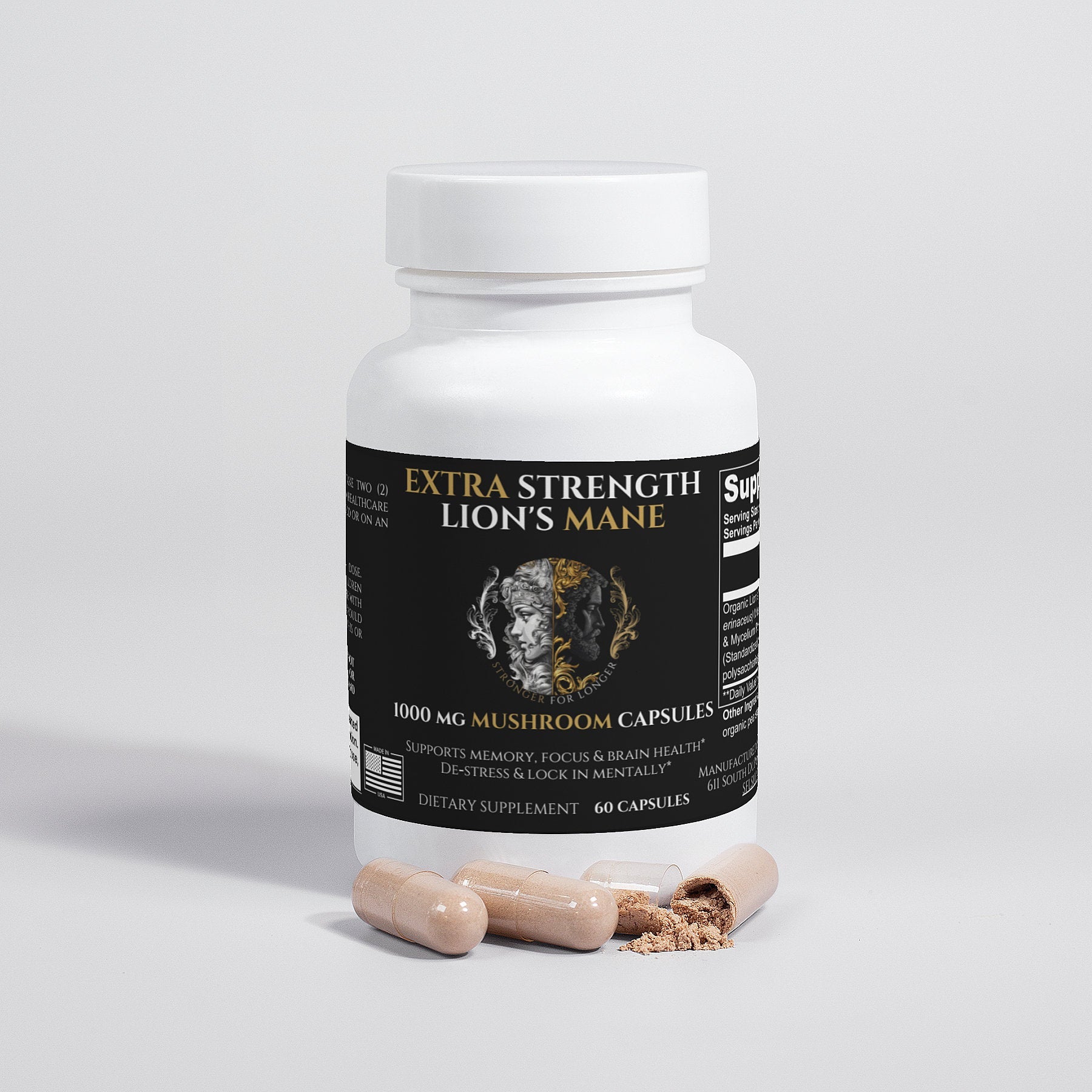Lion’s Mane: What the Science Says About Its Effects on the Body
Lion’s mane, a striking mushroom with a cascading, white, shaggy appearance, has captured the interest of both traditional medicine practitioners and modern scientists alike. Known by its scientific name Hericium erinaceus, this mushroom is celebrated for its potential cognitive and health benefits. In this blog post, we’ll explore the proposed effects of lion’s mane on the body from a scientific perspective, diving into the research behind its claims and what the current evidence suggests.
Understanding Lion’s Mane
Lion’s mane has a long history of use in traditional Chinese medicine, where it was believed to support overall health and longevity. Modern research has started to validate some of these traditional uses, particularly in the areas of neuroprotection and cognitive function. The mushroom is rich in bioactive compounds, including hericenones and erinacines, which are thought to be responsible for its potential effects on the nervous system.
Proposed Neuroprotective and Cognitive Benefits
Stimulating Nerve Growth Factor (NGF)
One of the most promising aspects of lion’s mane is its potential to stimulate the production of nerve growth factor (NGF). NGF is a protein essential for the growth, maintenance, and survival of nerve cells. Studies suggest that components of lion’s mane may help promote the regeneration of neurons and enhance neural plasticity—a quality that could translate to improved cognitive function and memory. Although much of this research is in its early stages, the findings have generated significant interest in using lion’s mane as a natural cognitive enhancer.
Cognitive Function and Memory
Some animal studies and small-scale human trials have indicated that lion’s mane supplementation may lead to improvements in cognitive performance. For instance, research has observed that regular consumption might help mitigate age-related cognitive decline. However, while these results are encouraging, larger and more rigorous human studies are necessary to confirm the mushroom’s efficacy in boosting brain function.
Anti-Inflammatory and Antioxidant Properties
Inflammation and oxidative stress are underlying factors in many chronic diseases, including neurodegenerative disorders. Lion’s mane contains potent antioxidants and has been shown to exhibit anti-inflammatory effects in various laboratory studies. By reducing inflammation and neutralizing free radicals, lion’s mane may contribute to overall brain health and protect against cellular damage. These properties also suggest potential benefits for conditions such as Alzheimer’s and Parkinson’s diseases, though the evidence remains preliminary.
Additional Health Benefits
Beyond its neuroprotective potential, lion’s mane is being explored for several other health benefits:
- Mood Enhancement: Some research suggests that lion’s mane may help alleviate symptoms of anxiety and depression by modulating inflammatory pathways and promoting neural health.
- Immune System Support: Preliminary studies indicate that the mushroom might boost immune function by enhancing the activity of certain immune cells.
- Gastrointestinal Health: There’s also emerging evidence that lion’s mane could support gut health, potentially by influencing the balance of beneficial gut bacteria.
Despite these promising areas of research, it’s important to note that much of the evidence comes from preclinical studies. More human trials are needed to fully understand these effects and determine optimal dosages.
What the Current Scientific Evidence Tells Us
While the initial research on lion’s mane is promising, the scientific community agrees that more extensive, controlled human studies are necessary. The majority of the available studies have been conducted in vitro (in the lab) or on animal models, meaning that the results may not directly translate to human health. Researchers caution that while lion’s mane shows potential, it should not be seen as a standalone treatment for cognitive decline, mood disorders, or other health conditions.
For those interested in incorporating lion’s mane into their wellness routine, it’s advisable to consult with a healthcare provider—especially for individuals who are pregnant, breastfeeding, or have existing health conditions.
Final Thoughts
Lion’s mane is a fascinating example of how traditional medicine can intersect with modern science. Its potential to promote neuroprotection, enhance cognitive function, and offer anti-inflammatory benefits makes it a subject of considerable interest. However, while the science is intriguing, it remains in its early stages. As research continues, we may soon have clearer answers about how lion’s mane works in the human body and how best to harness its benefits.
In the meantime, whether you’re a health enthusiast or simply curious about natural remedies, lion’s mane offers a promising glimpse into the future of integrative health—one where traditional wisdom and modern research work together to unlock nature’s secrets.
Looking to get some Lion's Mane? Look no further than our best stuff, yet. All from SFL.












Share:
Why You Should Be Taking Turmeric and Glucosamine: The Benefits and Why
Turmeric and Glucosamine: A Powerful Duo for Enhanced Health